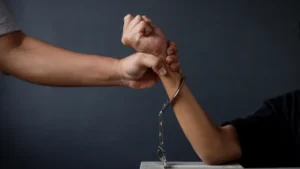

How a Criminal Record Can Change Your Career Path
Imagine training for your dream job for years—school, certifications, internships. Then, one legal mistake derails everything. You’re told you can’t work in your chosen field anymore. The door that once felt wide open now feels locked shut. This is the reality many people face after a criminal conviction. From background checks to job applications, a criminal record affects your job eligibility more than most expect.
Whether you’re applying for a new role or trying to keep your current one, it’s important to understand how convictions—especially for domestic violence—affect employment. Laws vary by state and profession, but the consequences are far-reaching.
Job Eligibility: The Immediate Impact of a Criminal Conviction
Criminal convictions—particularly those involving violence, theft, or abuse—can lead to disqualification from many types of jobs. Employers often conduct background checks to assess whether an applicant is suitable for the role. If a domestic violence conviction appears on your record, some employers may view you as a liability or risk.
Industries Most Affected by Background Checks
Jobs in education, healthcare, law enforcement, finance, childcare, and government typically require background screenings. Many of these sectors have zero-tolerance policies for any kind of violent conviction. For example, someone convicted of a domestic violence offense may be automatically disqualified from becoming a teacher, nurse, or police officer—even if they have the necessary qualifications.
Private employers may also be wary of hiring individuals with criminal histories, especially if the job involves trust, access to personal data, or working with vulnerable populations.
In some cases, the job may not be off-limits, but applicants must disclose their criminal history during the interview or on a job application. Failing to do so can result in termination later if discovered.
Job Eligibility, Professional Licenses, and Background Checks
Criminal convictions also affect individuals with or seeking professional licenses. Boards that regulate licenses for nurses, lawyers, teachers, and other professionals often require applicants to disclose past convictions. Depending on the board’s rules and the nature of the offense, a conviction may:
- Delay the licensing process
- Result in license denial
- Lead to license suspension or revocation
For example, someone working toward becoming a licensed counselor may be required to complete additional evaluations or hearings before they’re allowed to practice.
Certain felony convictions, including domestic violence, are considered “crimes of moral turpitude.” These offenses often raise red flags for licensing boards, especially in fields where trust, responsibility, and public interaction are involved.
Even after licensure, a professional may be reported to their board if convicted. Some boards have automatic suspension rules, while others conduct reviews before determining whether to discipline the license holder.
Sentencing Factors: How Severity Shapes Employment Outcomes
The severity of a criminal offense can influence employment consequences. Minor misdemeanors may not carry the same weight as felonies, but in competitive industries, even small red flags matter. Courts consider the following sentencing factors that may also affect career outcomes:
- Nature of the crime: Violent or abusive behavior—especially in domestic settings—is often viewed as a high-risk factor for employment.
- Time since the conviction: Some states allow old convictions to be sealed or expunged after a certain period. Employers may also be more forgiving of past offenses that occurred a decade ago versus last year.
- Rehabilitation efforts: Completion of court-ordered programs like anger management or counseling can support claims of rehabilitation and readiness to return to work.
- Compliance with sentencing: Employers often consider whether the individual has complied with probation terms or court requirements.
In short, someone with a single, non-violent misdemeanor who completed all legal requirements may have a better chance of maintaining employment than someone with a recent felony conviction involving violence.
Case Study: A Conviction’s Ripple Effect on Employment
Background
Lauren, a certified nursing assistant (CNA), was involved in a domestic dispute with her partner. A neighbor called the police after hearing shouting. Lauren was charged with misdemeanor domestic battery after admitting she slapped her partner during the argument.
Step 1: Legal Sentencing
The court sentenced Lauren to probation, and mandatory counseling, and a temporary restraining order was issued. She completed all required programs and avoided jail time. However, the misdemeanor remained on her record.
Step 2: Job Loss and Reporting
Lauren’s employer conducted an annual background check and reported the conviction to the state nursing board. While she wasn’t terminated immediately, the board opened an investigation to determine if she posed a risk to patients.
Step 3: License Review and Temporary Suspension
During the review, Lauren’s license was temporarily suspended. She was unable to work for three months. Her attorney provided evidence of her compliance with court orders and included testimonials from co-workers and supervisors.
Step 4: Outcome and Career Impact
The board reinstated her license under probationary terms. Lauren could return to work but had to check in regularly, undergo additional training, and was barred from working in-home care for a year. While she kept her job, her career options narrowed, and she had to rebuild her professional reputation.
Lauren’s case highlights how a single incident can affect not just employment but job eligibility, professional licensing, and long-term career growth.
Frequently Asked Questions (FAQs)
- Can I get a job with a domestic violence conviction?
Yes, but it depends on the job and employer. Some industries may disqualify you automatically, while others may allow you to explain the situation. - Will my record be checked if I apply for a professional license?
Yes. Most licensing boards require a background check and full disclosure of any convictions. - Can expunging my record help with job eligibility?
Yes. If your record is sealed or expunged, most employers and licensing boards won’t see it, increasing your chances of employment. - Do I have to tell employers about my conviction?
In many cases, yes. Lying or omitting your record can result in termination if discovered later. - Can I lose my job if convicted after being hired?
Yes. If your job requires a clean record or licensure, a new conviction can result in suspension or termination.



